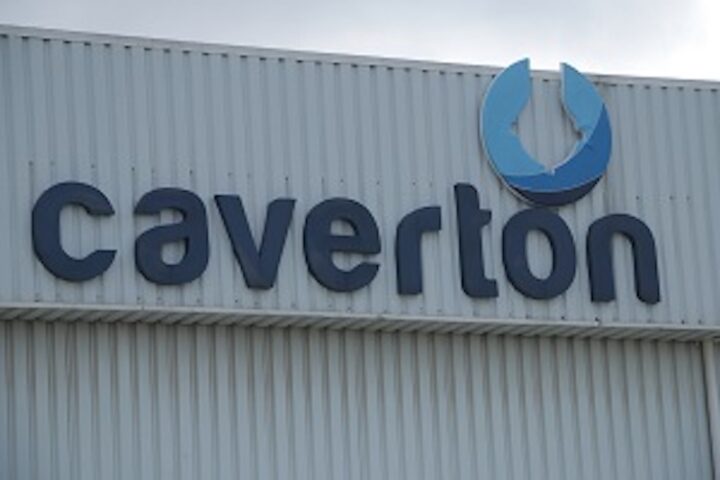Caverton Offshore Support Group Plc has posted a ₦2.09 billion profit before tax for the first half of 2025, marking a solid rebound in performance after periods of sectoral volatility. The result reflects improving operational demand, cost discipline, and strategic diversification across aviation and logistics services.
During a presentation in Lagos, Caverton’s management team highlighted strong momentum across its service lines, particularly in helicopter operations, aviation training, and offshore logistics support. Rising oil and gas sector activities, particularly in offshore energy hubs, drove demand for reliable aerial transport, boosting revenue from charter flights, crew transfers, and platform logistics.

The firm cited a return to growth in crew transport services, critical to national oil company operations and major energy projects off the coast of Ogoni, Bayelsa, and Delta. These contracts—often multi-month rolling engagements—helped stabilize cash flow, enabling Caverton to absorb cost pressures associated with aircraft maintenance and fuel.
Caverton also emphasized gains in its aviation training academy. Enrollment in pilot and maintenance certification courses increased, supported by contracts with domestic energy and maritime firms seeking certified professionals. The academy’s contribution provided non-aeronautical support to overall earnings and helped cushion volatility in flight operations.
From an operational perspective, management underscored strict cost control. Efficiency gains in scheduling, fuel procurement, preventive aircraft maintenance, and route optimisation reduced operating expenses. The company also renegotiated supplier contracts and adjusted exchange rate exposures, helping to control foreign expenditure tied to aircraft parts and aviation services.
Financial discipline extended to liquidity management. The company improved working capital by tightening receivables, extending payment terms with clients where feasible, and managing liabilities in foreign currencies. These measures enhanced cash position amid rising interest rates and forex pressures.
However, challenges remain. The aviation sector continues to face headwinds from inconsistent power supply, foreign exchange constraints, and domestic macroeconomic instability. Caverton executives confirmed ongoing investment in backup generators, aircraft leasing models, and hedging strategies to mitigate impact from exchange volatility and operational disruptions.
Looking ahead, Caverton outlined plans to pursue strategic horizontal expansion. The company is exploring partnerships to launch crewing services across regional oil hubs and expanding aviation training centres in Port Harcourt and Warri. It is also considering asset diversification—such as unmanned aerial systems (UAS) for offshore inspection and maritime logistics support.
Analysts welcomed the result as a positive signal. “A ₦2 billion pre-tax profit in a tough macro environment shows strategic resilience,” one aviation sector analyst commented. “Caverton’s diversified income streams—and disciplined execution—offer a blueprint for performance in transport-related services.”
To build on this performance, Caverton announced renewed emphasis on digital transformation. Plans include mobile booking platforms for charter services, remote training modules for pilots and technicians, and cloud-based operations control systems to improve efficiency and client tracking.
The company also reaffirmed its commitment to stakeholder transparency. It pledged quarterly financial disclosures, annual governance audits, and regular investor newsletters. Interim dividend proposals may arise at the board’s upcoming meeting, subject to funding and cash flow position.
In broader context, aviation logistics providers like Caverton play a pivotal role in supporting Nigeria’s oil and maritime industries, supplying critical transport services where road or sea connectivity is impractical. Their stability influences project timelines, local content deployment, and rural service access in remote oilfield locations.
In addition to its financial and operational strategies, Caverton is taking steps to deepen its environmental, social, and governance (ESG) initiatives. The company disclosed that it has initiated efforts to reduce its carbon footprint by exploring more fuel-efficient aircraft and adopting sustainable aviation practices. Plans are also underway to collaborate with research institutions on renewable aviation fuel trials, reinforcing its long-term sustainability commitment.
Furthermore, the company has committed to workforce development and local content enhancement. Caverton plans to sponsor more indigenous students for aviation-related training while increasing the employment of certified Nigerian professionals across its operations. These efforts, it says, will not only strengthen its talent pool but also align with the federal government’s broader push for local capacity building in the oil and gas and aviation sectors.
In summary, Caverton’s ₦2.09 billion pre-tax profit in H1 2025 marks a notable achievement, reflecting solid operational demand, financial management, and strategic diversification. With disciplined execution and emerging growth areas, the company appears well-positioned to sustain its trajectory while contributing to national logistics capacity and economic resilience.
Support InfoStride News' Credible Journalism: Only credible journalism can guarantee a fair, accountable and transparent society, including democracy and government. It involves a lot of efforts and money. We need your support. Click here to Donate
